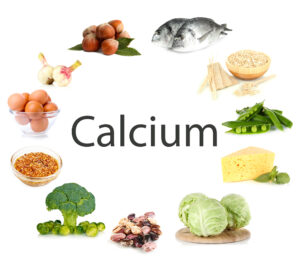 Calcium Foods for Strong Bones and Good Sleep
Calcium Foods for Strong Bones and Good Sleep
Calcium is one of the most famous of all minerals due to its vast array of benefits to our health. Dr. Linus Pauling, the two-time Nobel Prize winner said: “You can trace every sickness, every disease, and every ailment to a mineral deficiency.”
Studies have proven that calcium increases bone health, reduces high blood pressure, relaxes the nerves and muscles, prevents colon cancer and kidney stones, and acts as an effective remedy for insomnia and sleeplessness.
Adelle Davis, one of the first nutritionists to base her recommendations on scientific studies, says: “A calcium deficiency often shows itself by insomnia, another form of an inability to relax. The harm done by sleeping tablets, to say nothing of the thousands of dollars spent on them, could largely be avoided if the calcium intake were adequate.”
Calcium was discovered by the British chemist Sir Humphry Davy in the early 1800’s. Regarding stomach and colon health, a 2007 study in the Journal of the National Cancer Institute found that calcium protects high-risk people from developing the polyps (growths in the large intestine) that can lead to cancer in the large bowel.
Calcium supplements were also shown to help prevent kidney stones in a 2008 study at the University of Wisconsin School of Medicine.
Calcium is directly related to our cycles of sleep. In one study, published in the European Neurology Journal, researchers found that calcium levels in the body are higher during some of the deepest levels of sleep, such as the rapid eye movement (REM) phase. The study concluded that disturbances in sleep, especially the absence of REM deep sleep or disturbed REM sleep, are related to a calcium deficiency.
William Sears, M.D. writes: “Calcium helps the brain use the amino acid tryptophan to manufacture the sleep-inducing substance melatonin. This explains why dairy products, which contain both tryptophan and calcium, are one of the top sleep-inducing foods.”
One calcium-based supplement shown to be effective for insomnia is Sleep Minerals II from Nutrition Breakthroughs. This formula contains highly absorbable forms of calcium and magnesium, the best minerals for sleeplessness and insomnia, as well as for menopause insomnia, heart health, restless legs syndrome and bone strength.
It also includes vitamin D and zinc and is delivered in a softgel form with healthy carrier oils, making it more quickly absorbable than tablets or capsules and providing a deeper, longer-lasting sleep.
Richard P. of Parkville, Maryland says: *The Sleep Minerals are making quite a difference. I was regularly waking up at around 3:00 a.m. and couldn‘t go back to sleep. Now I wake up once to go to the bathroom, but the great thing is, I then fall back asleep and sleep several more hours.*
Anita L. of New Caney, Texas says: “I was having hot flashes every 30 minutes to an hour through the night and was so miserable. After about two weeks of taking the Sleep Minerals, I noticed an incredible difference with my sleep. I have much less interruptions from hot flashes, I’m sleeping much better and I’m a lot more comfortable.”
Calcium can be obtained from calcium foods or supplements, and a combination of both may be beneficial to overall health.
This health news is provided by Nutrition Breakthroughs, a publisher of nutrition articles and supplier of effective natural remedies since 2002. Nutrition Breakthroughs makes the original calcium and magnesium based natural sleep aid Sleep Minerals II, as well as Joints and More, the natural solution for joint relief, aches and pains, stronger hair and nails and more energy.



